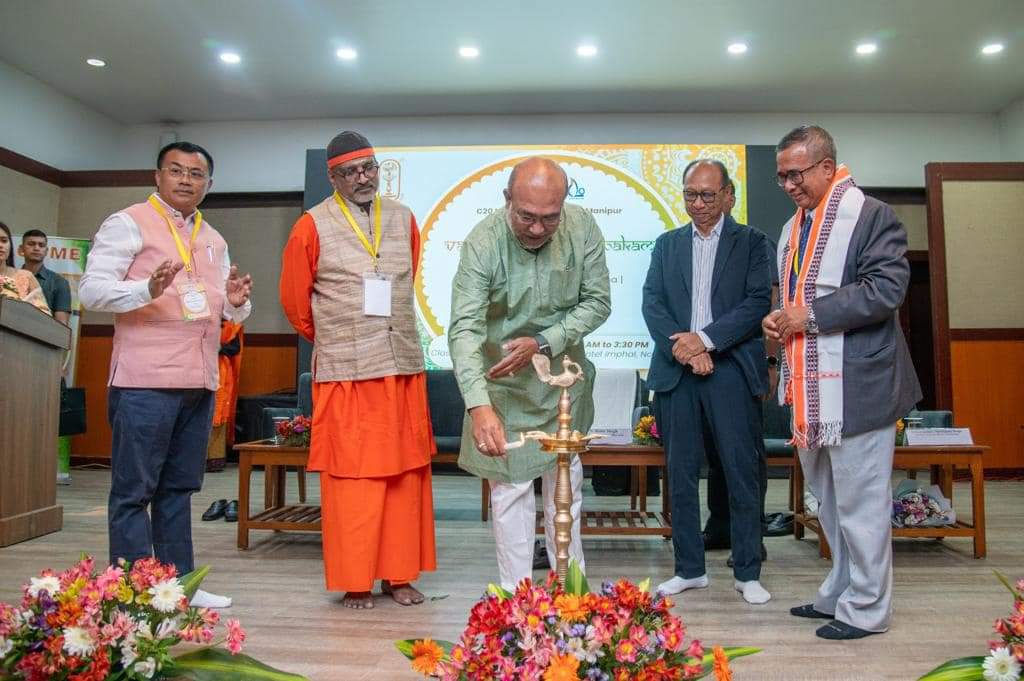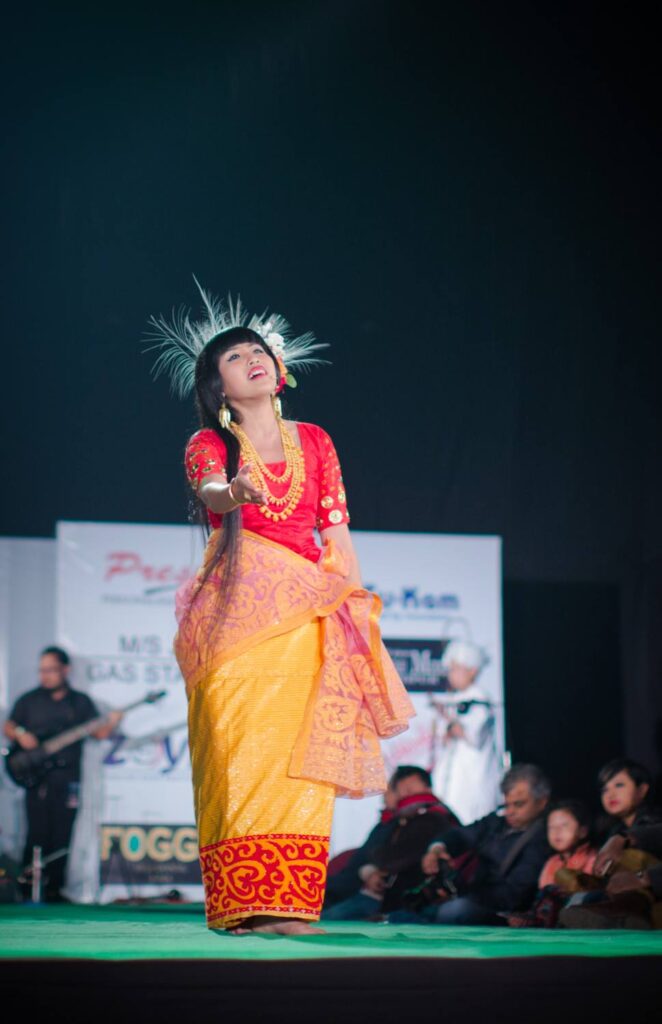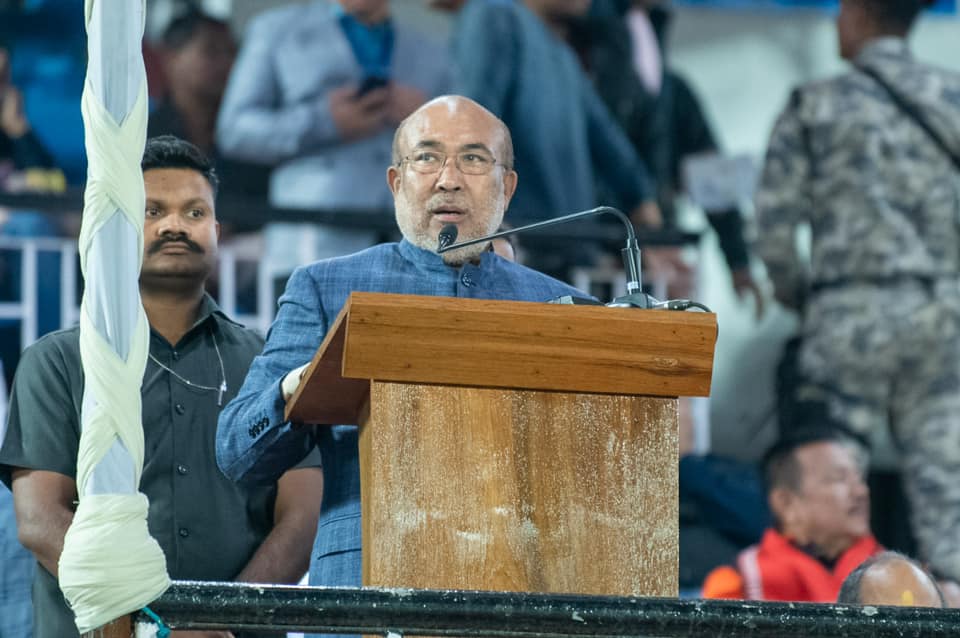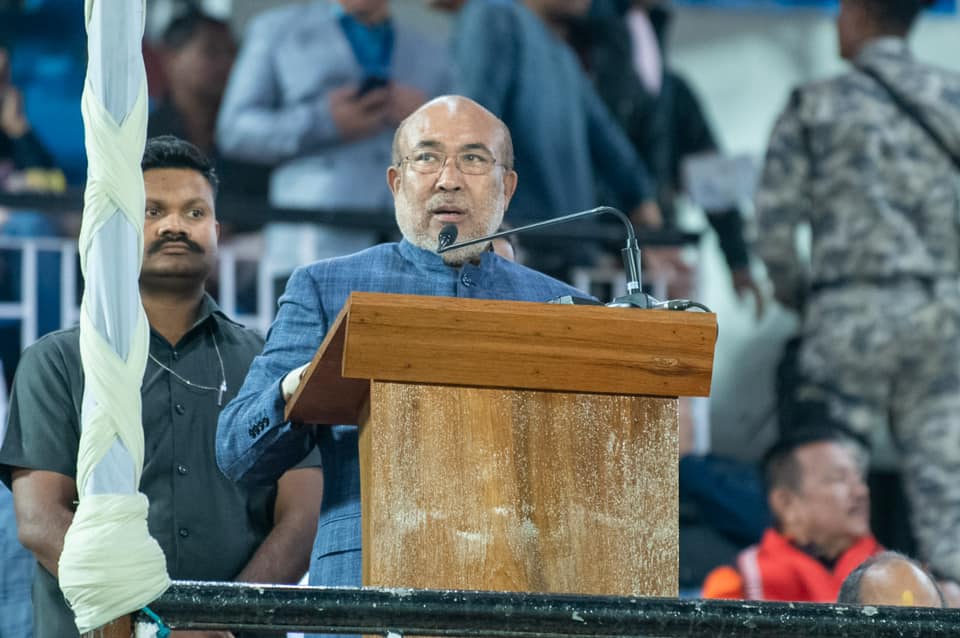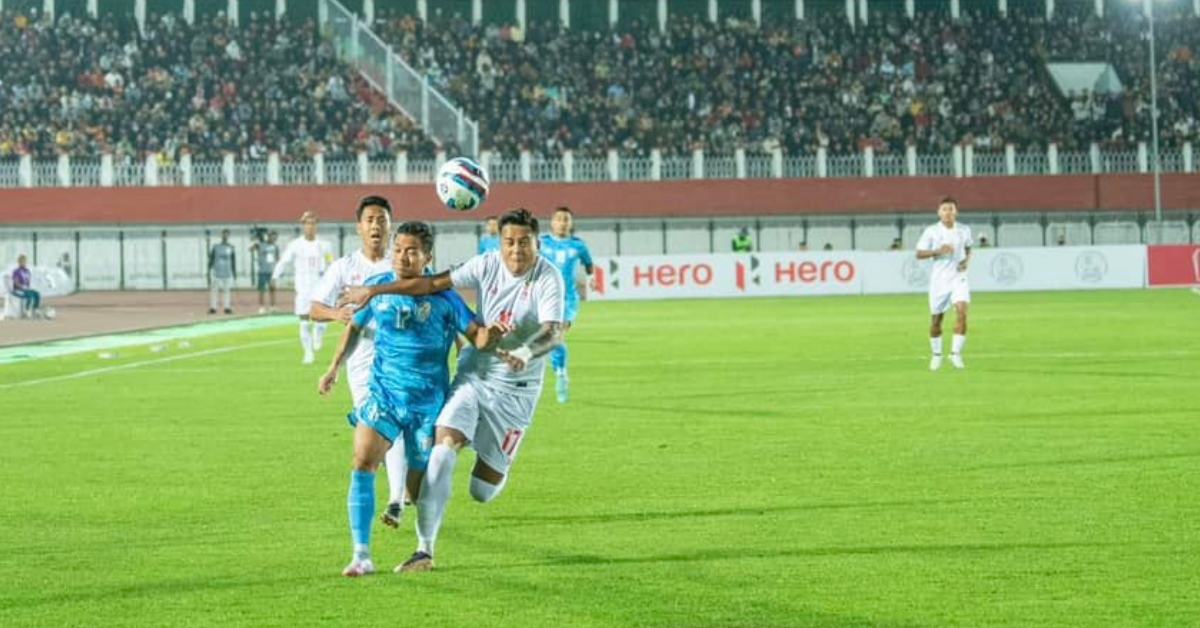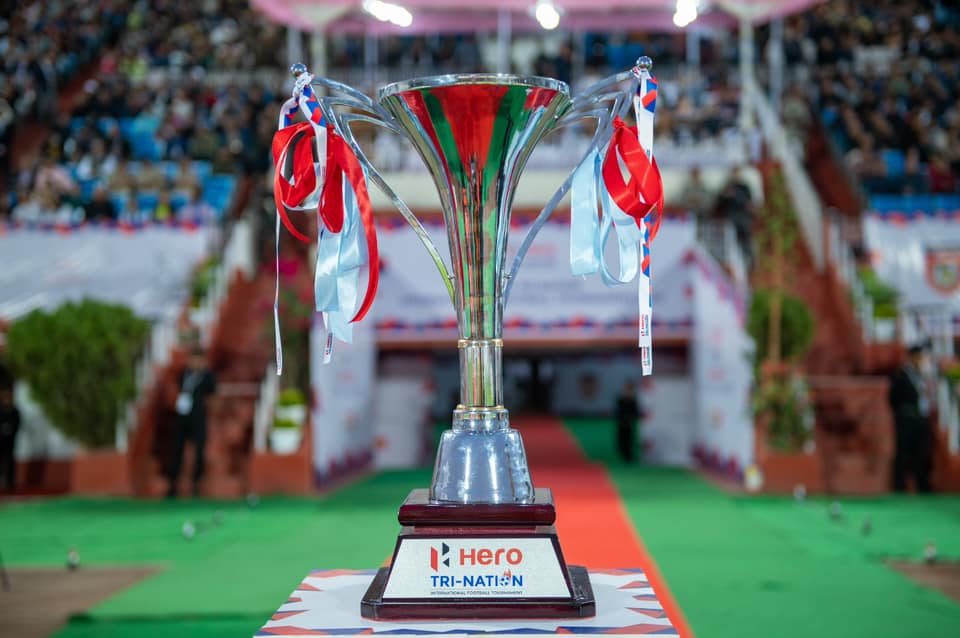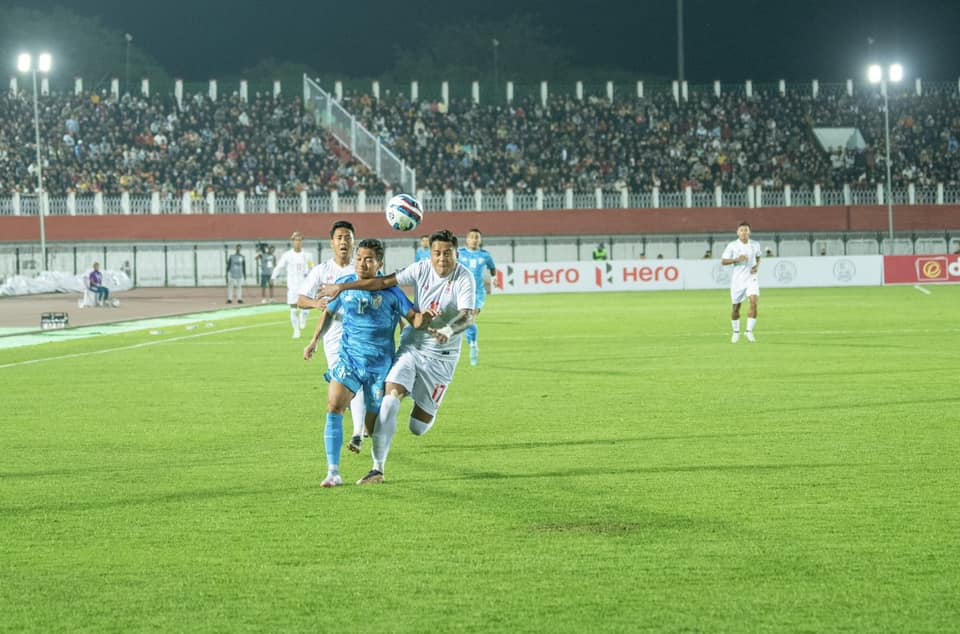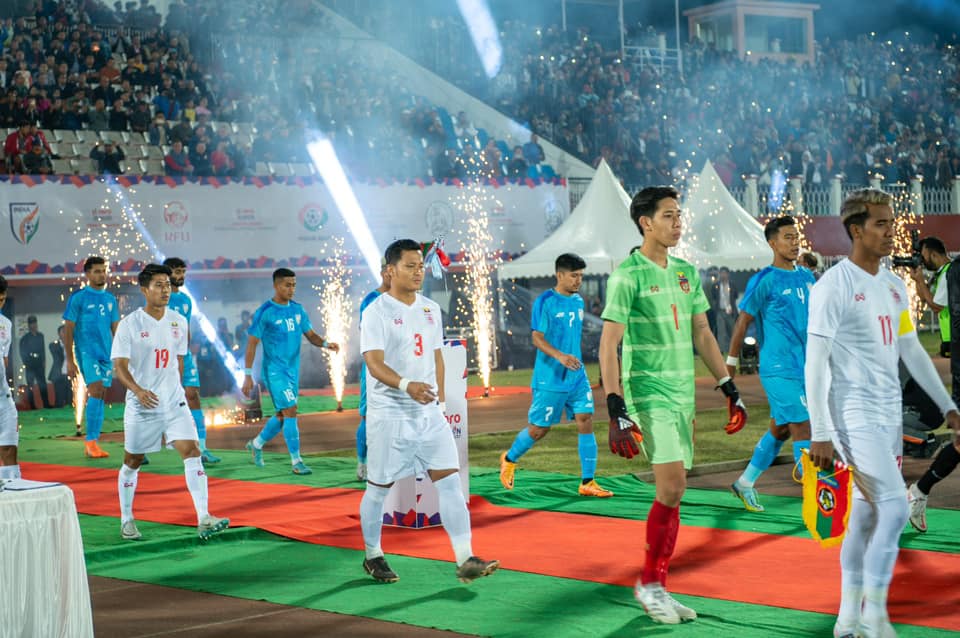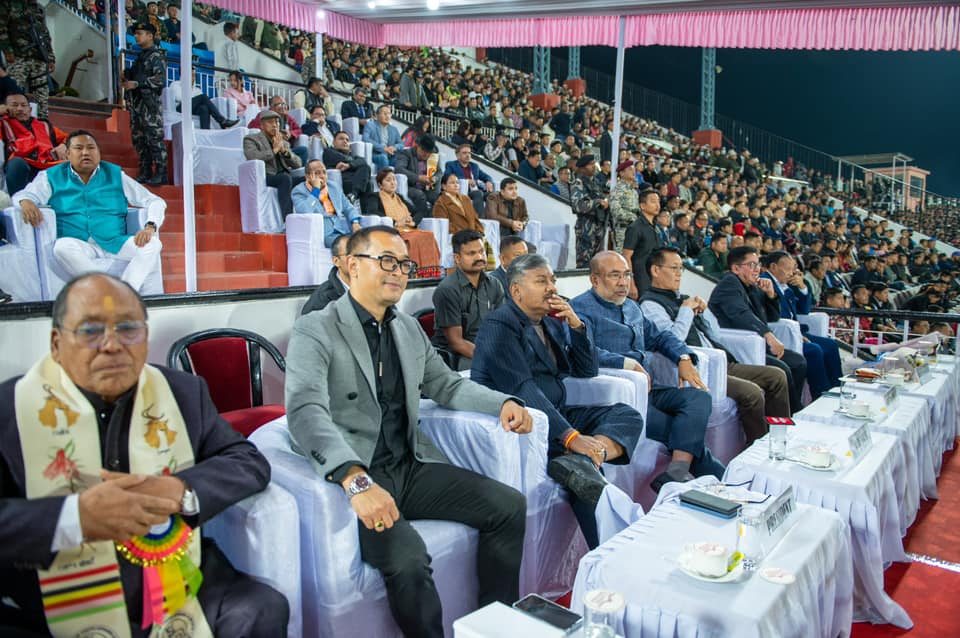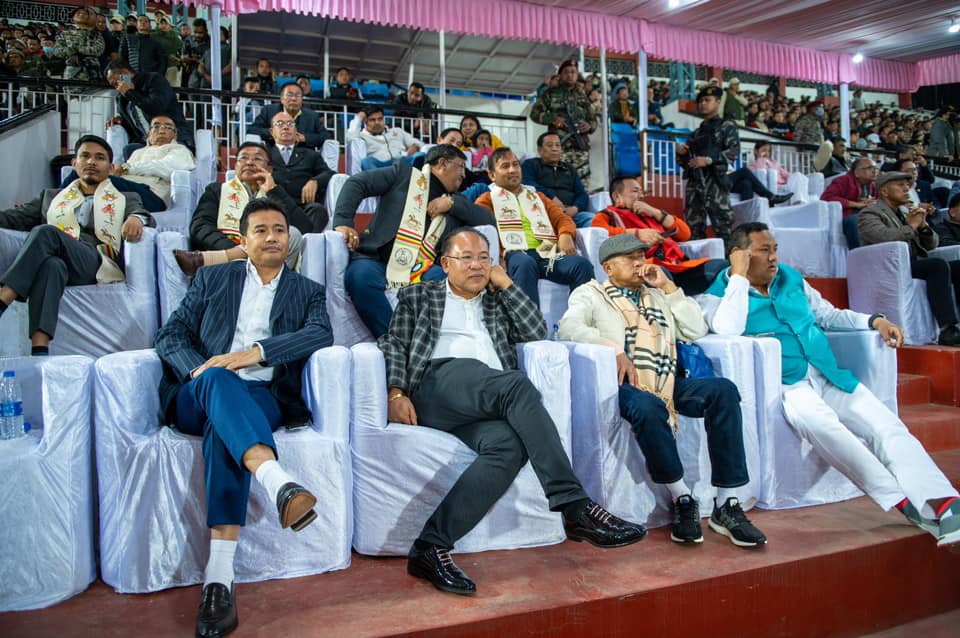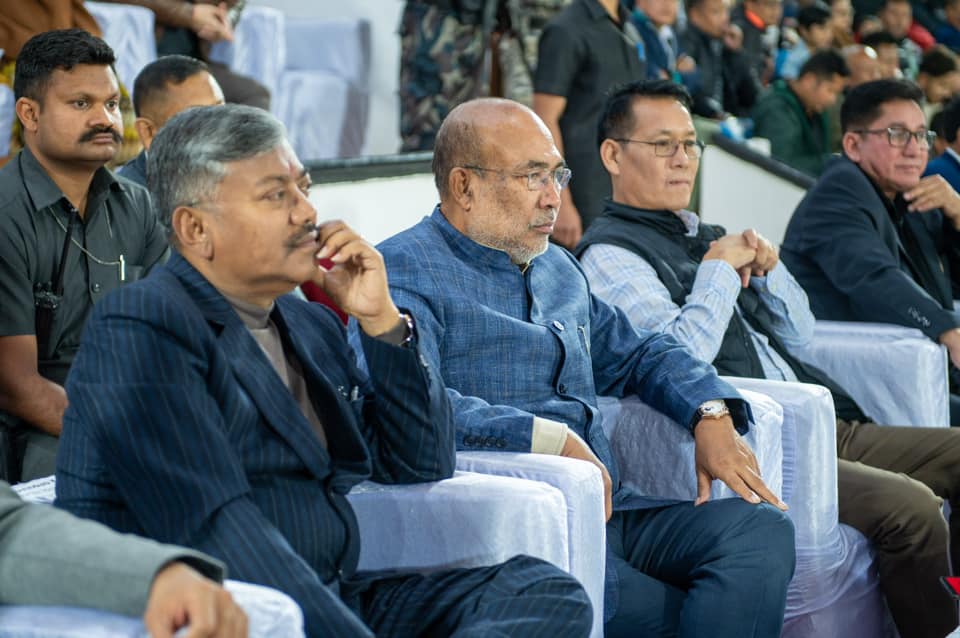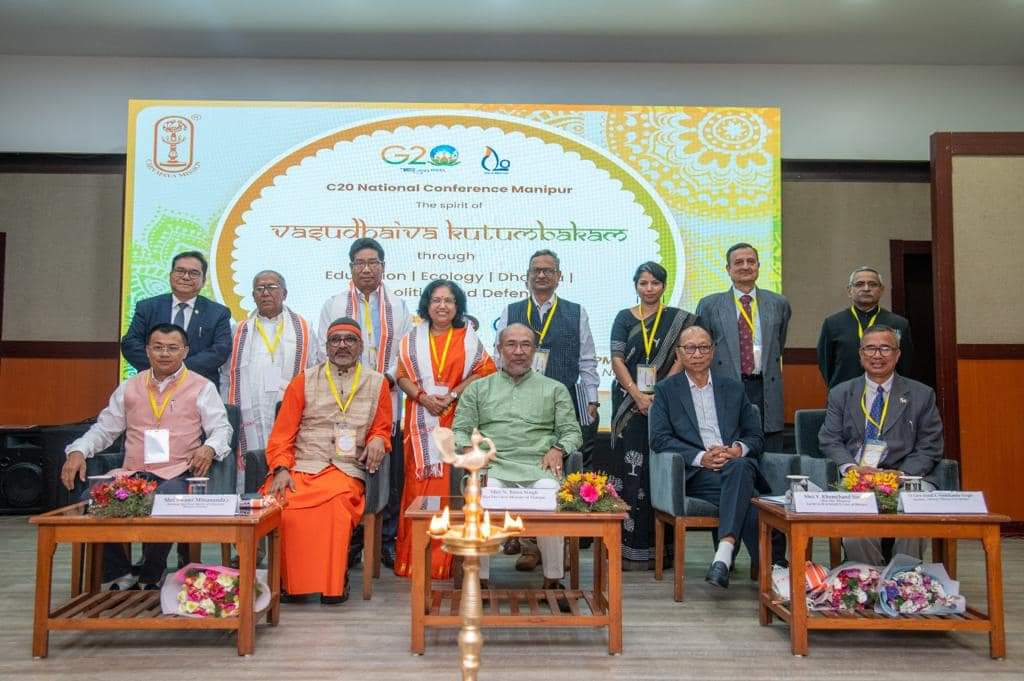
Manipur hosts C 20 Meet
Manipur hosting global events of G20 is a sign that the State is moving towards development, said Chief Minister N Biren Singh. Addressing the inaugural session of the C20-India 2023 Vashudhaiva Kutum-bakam National Conference, organized by Chinmaya Mission at the conference hall of the Hotel Imphal.
By James Khangenbam 10 April 2023 Imphal:
Manipur hosts C 20 Meet
N Biren said there is development in the State with improvement in the law-and-order situation under the guidance of Prime Minister Narendra Modi and support of the people.C20, short for Civil-20 is an official engagement group of the G20, representing the civil society organizations of the G20 member countries.
Continuing his speech, N Biren said India has been bestowed with the honour of guiding the world with the country assuming the G20 presidency. It is a proud moment for every citizen of India. He added that the Prime Minister has very aptly chosen the theme for India’s presidency as “Vasudhaiva Kutumbakam” which translates to “One Earth, One Family, One Future” .
The theme, LiFE (Lifestyle for Environment) also puts the spotlight on the importance of making environ- mentally sustainable and responsible choices which will lead to adopting globally transformative actions for a cleaner and greener Earth.
The Chief Minister also mentioned that India’s G20 presidency also marks the beginning of Amritkaal that will lead the country to become a futuristic, prosperous, inclusive and developed society, distinguished by a human-centric approach at its core.
He added that Vasudhaiva Kutumbakam is a universal maxim whose purpose is not imposition but the evolution of human consciousness that will lead to protection of the world through friendship and cooperation.
N Biren further observed that India has shown the way to defining Vasudhaiva Kutumbakam by supplying Covid vaccines to various Nations, foodgrain to war-torn Nations, and human power to combat disasters.
He expressed confidence that the deliberation at the conference will go a long way in spreading the invaluable message of universal brotherhood and voicing the concerns of the world population through the civil society organizations to the world leaders in the G20 .
Rural Development and Panchayati Raj Minister Y Khemchand Singh, while delivering his speech, stated that economic development of the State is possible through development in the tourism sector. Khemchand continued that Vasudhaiva Kutum-bakam reflects India’s global leadership and added that the country’s role as a global leader has improved a lot under PM Modi.
He mentioned that India as a global leader has been taking a broader role in solving several challenges. He stressed the need to promote the concept of Vasudhaiva Kutumbakam to maintain peace across the world and also expressed gratitude to the Chinmaya Mission and C20 team for organizing the conference in the State.
Swami Mitrananda resident spiritual mentor at Chinmaya Mission Chennai, Chairman, M Asnikumar Singh Loktak Development Authority, L Nishikanta Singh, Secretary, Chinmaya Mission Trust Manipur, Vice Chancellors of Universities, Professors of various educational institutes, retired and serving army officers also attended the conference, among others.
The inaugural session was followed by technical sessions on topics including Dharma, Education, Ecology, Geopolitics and Defence.
Manipur hosts C 20 Meet Read More
